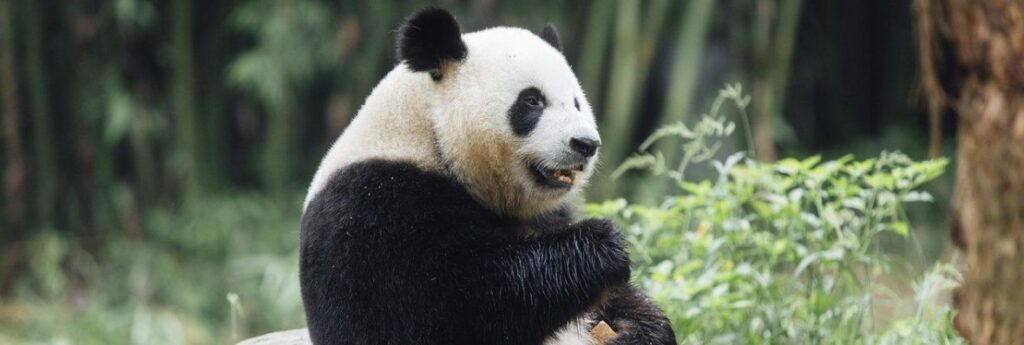Hong Kong has welcomed a new pair of giant pandas gifted by Beijing – the third pair of giant pandas to be sent to the city from mainland China since the former British colony returned to Chinese rule in 1997. Tourism industry representatives are optimistic about the potential impact of housing six pandas, hoping it will boost visitor numbers in Hong Kong.
Officials have encouraged businesses to capitalize on the popularity of the new bears and newborn cubs to seize opportunities in what some lawmakers have dubbed the “panda economy.”
The arrival of An An and Ke Ke came after their new neighbour, Ying Ying, gave birth to twins recently and became the world’s oldest first-time panda mother on record.
The newcomers bring the Ocean Park panda population to six, including the father of the twins, Le Le. Ocean Park chairman Paulo Pong Kin-Yee noted that would make three generations of giant pandas at the popular Hong Kong zoo and aquarium attraction.
Chief Executive John Lee said An An is a five-year-old male panda who is agile, intelligent and active, while Ke Ke, a five-year-old female, is good at climbing, cute and has a gentle temperament.
The new arrivals will be in quarantine for two months to adapt to their new home. Lee expressed hope that the public could meet the new bears in mid-December. In the meantime, the government will invite residents to propose new names that showcase the pandas’ characteristics.
Pandas are considered China’s unofficial national mascot. The country’s giant panda loan program with overseas zoos has long been seen as a tool of Beijing’s soft-power diplomacy. Giant pandas are only found in China’s southwest and their population is under threat from development.
But caring for pandas in captivity is expensive. A zoo in Finland agreed with Chinese authorities to return two loaned giant pandas to China more than eight years ahead of schedule because they were too costly for the facility to maintain amid declining visitors.
Hong Kong’s Ocean Park has been hosting pandas since 1999, when the first pair, An An and Jia Jia, arrived in the financial hub shortly after the former British colony returned to China.
Jia Jia, who died at 38 in 2016, is the world’s oldest-ever panda to have lived in captivity. The average lifespan for a panda in the wild is 18 to 20 years, while in captivity it’s 30 years, according to the Guinness World Records.
If you enjoyed or found this story useful, we’d appreciate if you would forward it to a colleague or friend who may also enjoy it. If, on the other hand, a friend shared it with you, welcome! You can get all the latest travel news and reviews from Travel Industry by simply clicking HERE.

